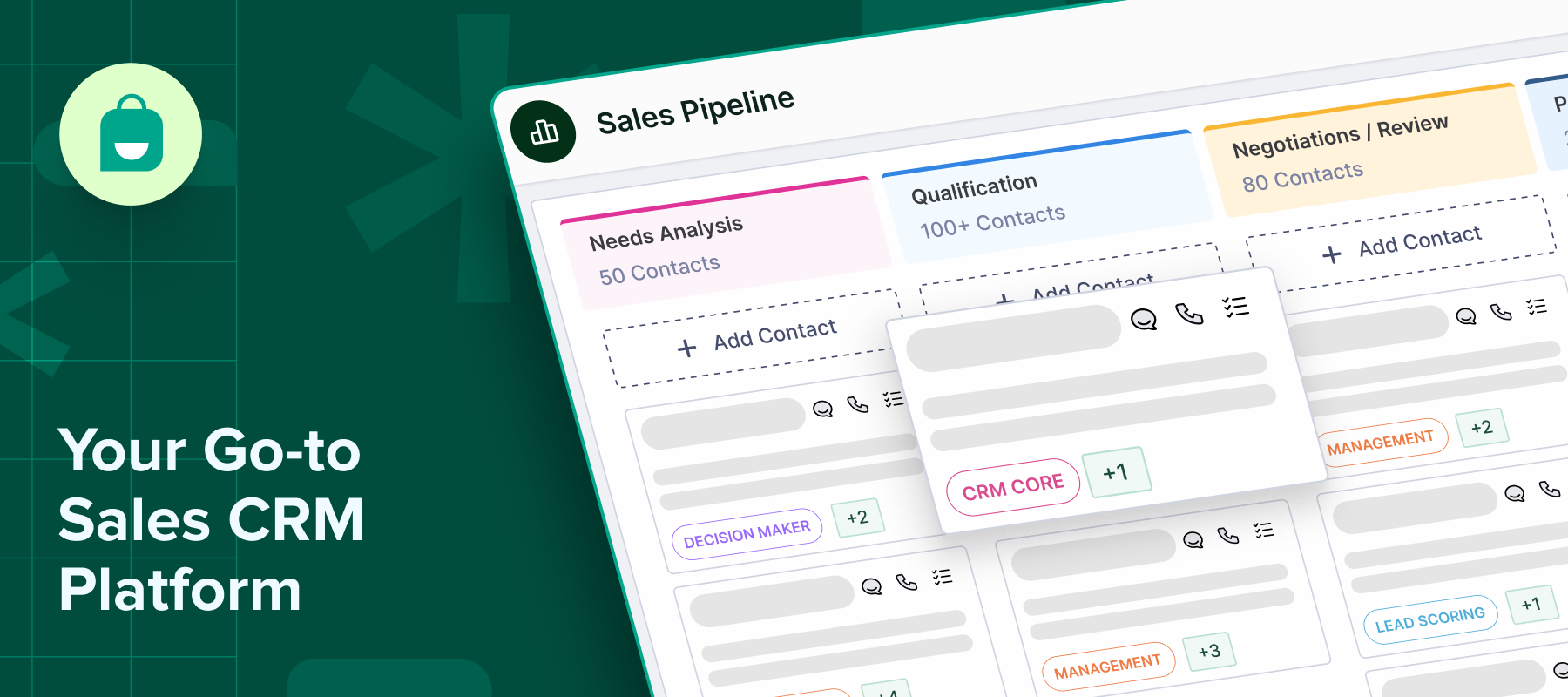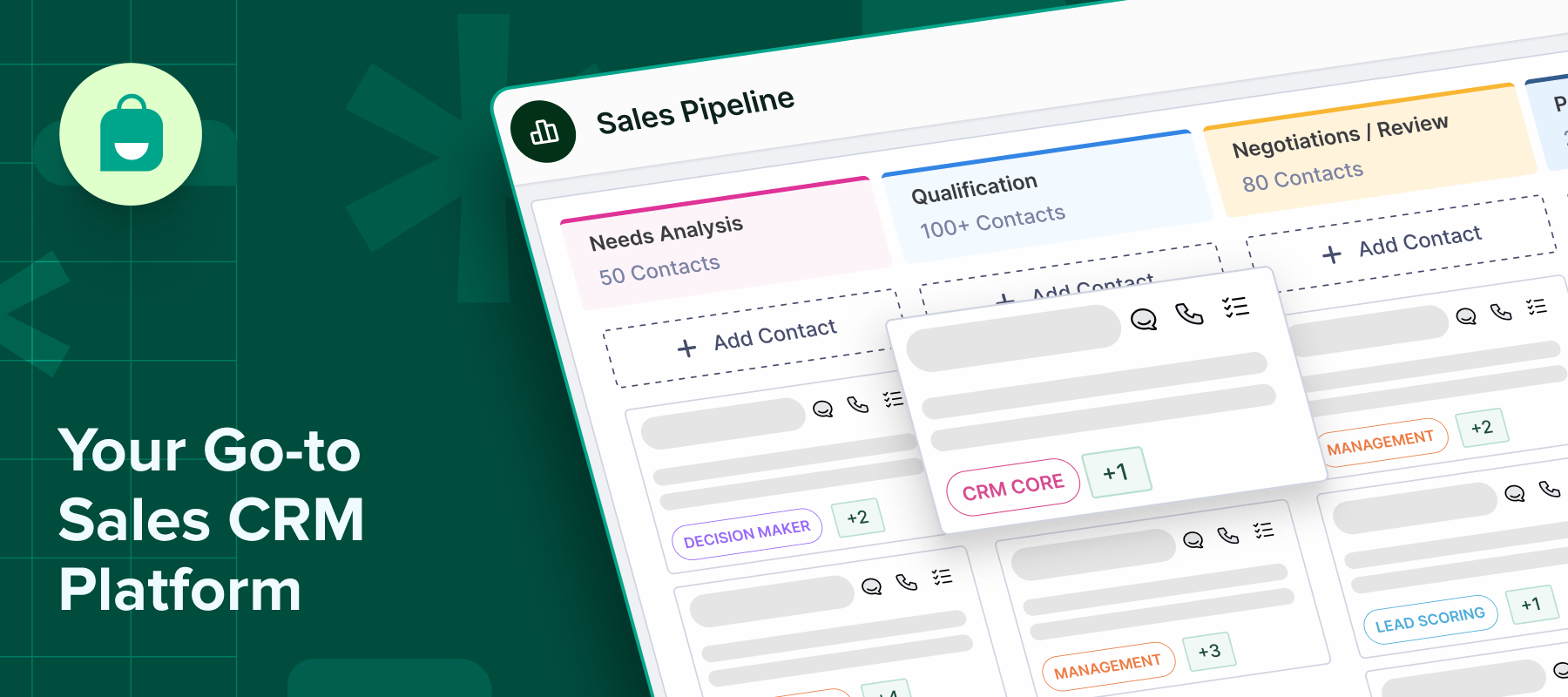In real estate, speed and timeliness are critical to moving deals. That’s why having the right sales CRM is key to staying organized, responsive, and competitive.
In this post, we will cover the best CRM for real estate teams and go through what you need to know when looking for the perfect real estate CRM.
Why real estate agents need a specialized CRM
There are various reasons that make a specialized CRM necessary for real estate agents:
Unique needs of real estate lead cycles
Leads in real estate do not necessarily follow the typical sales funnel. Clients might often take days or months to decide on a deal, so a CRM supporting long, variable timelines is needed.
Need for property matching, follow-ups, and reminders
Agents must regularly juggle listings and client requirements, requiring a specialized CRM that can help match properties to leads, automate reminders, and schedule timely follow-ups.
Importance of managing client preferences and communication logs
Real estate clients demand personalized service. This requires a CRM built to help real estate agents easily track preferences, past interactions, and community history.
Key features to look for in real estate CRMs
These are some of the major features to look for when choosing a CRM for real estate:
Property and client database
A good real estate CRM should let you store and organize property listings alongside detailed profiles of every client. This can help you easily match the right people with the right property.
Lead capture
Irrespective of whether leads reach you through your website, Facebook ads, WhatsApp, or a real estate portal, your CRM should be able to capture them in a single place without needing any manual entry.
Follow-up reminders and drip automation
Keeping in touch is crucial when converting real estate clients. Look for CRMs that can help you set reminders, schedule follow-ups, and allow you to share automated messages to keep the leads warm.
Mobile app access for on-the-go updates
Mobile app access is another crucial feature a real estate agency needs in a CRM, as this can enable you to easily update leads, check schedules, and respond, no matter where you are.
Integration with listing portals & ad platforms
The right CRM should also be able to connect smoothly with listing portals and platforms like 99acres, MagicBricks, or Google Ads, making it easier to track performance and leads.
Site visit scheduling, contract reminders
From booking site visits to nudging you about contract dates, having built-in scheduling and reminder features can help ensure that you don’t miss key deal milestones.
Best sales CRM software for real estate in 2025
Here are some of the top real estate CRM choices to pick from in 2025:
Zoho CRM
Zoho CRM is a great tool for real estate agents who need flexibility and automation, as it comes with custom modules and workflow options to adapt to most sales processes.
Key features:
-Custom fields and pipelines
-Workflow automation
-Client interaction tracking
HubSpot CRM
HubSpot’s free plan makes it an attractive entry point for many small and medium-sized real estate teams. It comes with an easy-to-use interface, a basic pipeline, and contact management features out of the box.
Key features:
-Email tracking and automation
-Simple pipeline setup
-Free plan with robust features
Interakt
Interakt offers a great CRM solution for real estate agents who use platforms like WhatsApp to engage customers. The tool is great for capturing leads, nurturing them, and driving conversions through real-time messaging.
Key features:
-WhatsApp lead capture and chat integration
-Automated reminders and tagging
-Simple and comprehensive sales pipeline view
Comparison table:

CRM use case: From lead to closed deal
A CRM can help real estate teams streamline every step from the initial inquiry to closing the deal. When a lead comes in through a form or a real estate portal, the CRM can automatically capture details and assign them to the relevant agent. From here, agents can see the lead in a comprehensive and centralized dashboard, with key data like property preferences, budget, location, etc.
For example, your CRM can send an automated notification on WhatsApp to acknowledge a client inquiry promptly. Agents can then use reminders and schedule follow-ups, and thus keep the conversations moving. With all updates logged into a single place and easy access to past chats, it becomes simpler to build trust and guide clients towards a close.
Choosing the right real estate CRM for your agency
These are a few things to consider when choosing a CRM that can deliver on your unique real estate agency needs:
Solo agents vs broker teams
Solo agents need a simple CRM that can offer lead tracking, reminders, and contact management without too much complexity. Broker teams, on the other hand, need shared pipelines, user roles, and collaboration tools to manage multiple agents and clients efficiently.
Local vs global clientele
For local clients, CRMs that support local language and regional platform integrations are ideal. For global clients, a CRM with multilingual support, time zone flexibility, and email outreach features is preferable.
Integration needs: WhatsApp, MLS, email, ads
Choose a CRM that connects seamlessly with your daily tools like WhatsApp, MLS, email, ad platforms, etc. The tool you choose should largely be based on your unique integration needs, to keep your sales flow seamless.
CRM pricing vs features based on agency size
Smaller teams should focus on affordable CRMs that offer core features without any hidden costs. Larger real estate agencies, however, should look for scalable tools with deeper automation, support, and customization options.
Common mistakes when using a CRM in real estate
These are some of the common mistakes many real estate agencies make when using a CRM, which you can easily avoid:
Not setting follow-up workflows
Many agents forget to map out follow-up sequences, often leading to missed opportunities. A CRM works best when it nudges you to stay in touch at the right moment.
Poor data hygiene
Outdated contacts, missing information, and duplicate entries can lead to your CRM getting messy and unreliable, so regularly clean up to maintain lead quality.
Relying on manual communication
Reaching out manually to every lead is inefficient and tiresome. Leverage the CRM tool to save time with templated messages or auto responses.
Overlooking automation features
Not fully utilizing the CRM automation tools is another common mistake many real estate teams make, resulting in more manual work and a wider room for error.
Real estate CRM setup tips
Here are a few effective and actionable tips to get the best results out of your real estate CRM setup:
Customize pipelines by property type
Set up different pipelines for residential, commercial, or rental deals, as this can help agents seamlessly manage each deal type with tailored stages and efficiently track progress.
Set reminders for site visits and contract deadlines
You can set up automated reminders to stay on top of important actions like site visits, follow-ups, and contract deadlines, to ensure no opportunity is left unexplored.
Use labels/tags for lead segmentation
Use labels and tags for lead to segment them based on interest level, budget, location, etc. This is extremely important as you can seamlessly prioritize follow-ups and personalize outreach.
Conclusion
The right CRM can simplify real estate lead management, streamline client tracking, and improve the timeliness and effectiveness of every follow-up. Choosing a CRM that is built for real estate workflows, such as Interakt, should be a top priority to achieve faster deal closures.


